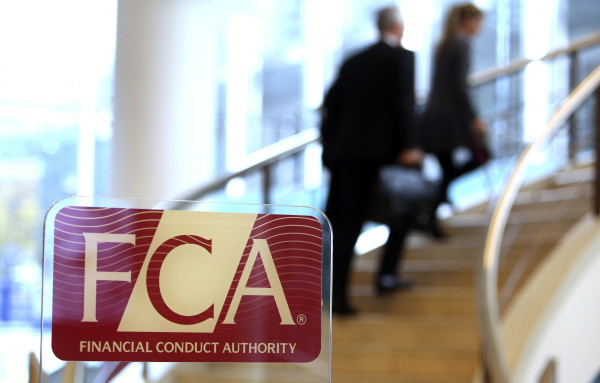

The Financial Conduct Authority centres its work around its three key operational objectives: to protect consumers, protect financial markets and promote competition.
Given this, it is unsurprising that much of its recent work has focused on protecting people from harm, and tackling fraud plays a considerable part in that.
The FCA works closely with regulated businesses to support the management of fraud risks and is often a key voice when it comes to influencing government decision-making surrounding the issue.
Notably, the FCA recently played a key role in the successful discussions on expanding the government’s online safety bill to protect consumers from investment fraud and scam advertisements.
In recent years the FCA has made great strides in helping raise awareness of the ever-increasing prevalence of fraud and scams in our country, and has developed useful resources to help protect consumers from harm.
Its website houses a plethora of useful information, tools and guidance geared towards supporting people in building a better awareness of fraud and helping to protect themselves, particularly through its ScamSmart campaigns.
The FCA’s Warning List allows consumers to check whether a business or individual is authorised, and its ScamSmart tool also allows them to check the legitimacy of an investment or pension opportunity they have been offered in order to help them avoid scams.
However, while there are many positives in terms of the FCA’s ability to help tackle fraud, there are no doubt some limitations, particularly in terms of prosecution.
In its previous discussions around fraud and the threat it poses to the financial services industry, the FCA has acknowledged its own limitations in this area:
- The Financial Services & Markets Act 2000, which sets out the FCA’s powers and remit, does not invest the FCA with any general power or authority to prosecute fraud. The FCA is only able to prosecute fraud as a private prosecutor.
- The FCA’s investigation powers can only be used to investigate regulated businesses or those offences prescribed in s168 of FSMA, which does not include fraud. The FCA has no statutory power in respect of fraud and, if fraud charges are brought, they are private prosecutions, outside the ambit of the statutory remit given to the FCA by FSMA.
Intelligence environment
Last year the FCA set out its intention to create a digital unified intelligence environment (DUIE), which it claims will mean it is better equipped to anticipate harm and protect consumers through a cutting-edge approach to collecting, storing and analysing data.
Should it work as effectively as intended, the DUIE represents an important step towards creating technology that helps us be one step ahead of fraudsters.
As we are already far too aware, fraudsters are becoming progressively more sophisticated as technology develops. They unfortunately benefit from advances in technology just as we do, but this results in devastating outcomes for their victims.
The FCA describes its DUIE as a "modular technology architecture, which will support all the elements of an end-to-end intelligence lifecycle – from data collections products at one end, to algorithms which trigger interventions at the other".
With such a wide-reaching end goal, it will no doubt be a challenge to build and implement and it will likely take some time before it is useable, let alone be accurate and effective in helping identify the need for interventions.
However, if successfully developed and implemented, the DUIE will no doubt support the FCA’s attempts to tackle fraud and could have the potential to greatly improve its ability to help prevent fraudulent activity from taking place.
Co-ordinated regulation
Last year the FCA joined the Digital Regulation Co-operation Forum (DRCF) as a full member alongside Ofcom, the Information Commissioner’s Office and the Competition and Markets Authority, having been an observer member since the forum’s inception in July 2020.
The DRCF brings together the major UK regulators tasked with regulating digital services, with the aim of providing consistent and co-ordinated regulation to the UK’s digital services and economy as a result.
In its second year, the DRCF has set out to tackle some of the biggest digital challenges, including:
- Protecting children online.
- Promoting competition and privacy in online advertising.
- Supporting improvements in algorithmic transparency.
- Enabling innovation in the industries they regulate.
While not necessarily the primary focus, the FCA’s membership in the forum has the potential to help its work in tackling fraud and reducing harm.
In addition to its key priorities, the DRCF has said that it aims to continue building on engagement between Ofcom and the FCA on online fraud and scams, which will be key to helping tackle the ever-evolving fraud landscape.
The digital world is constantly changing and has rapidly become central to how the financial services industry operates. While this has its positives, there is also a great deal of risk associated as fraudsters have been provided with new opportunities to target people.
By working collaboratively and adopting a joined-up approach, the regulators will be better able to recognise and reduce harm, and with hope, the reduction of fraud will play a considerable part in that.
But will there be a burden on businesses in terms of the type of data they will need to provide to regulators, or will better tech capabilities lead to smarter ways of obtaining data from companies?
As progress continues, both by the FCA in its creation of the DUIE and by the DRCF in its ongoing work, there is likely to be an onus on businesses in terms of the data they will need to provide to regulators.
However, with hope, this could be a shorter-term issue while technology plays catch up.
The work being carried out aims to reduce harm to both businesses and consumers alike, meaning any burden on companies to provide data will likely help them in the long run.
In order to make real progress, the collaboration of both the regulators and the businesses that rely on them is vital.
Matt Burton is chief risk officer at Quilter



